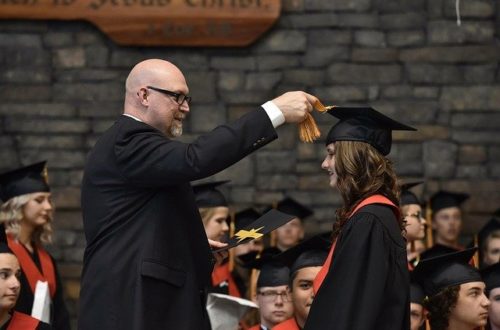Top 8 College Application Mistakes to Avoid

The quest for college admission spots is more intense than ever, with stiff competition from both qualified international students and a rising number of applicants from various cohorts. In this landscape, avoiding common college application mistakes has become paramount for securing a coveted spot.
When the issue of college admissions starts to weigh heavily on the minds of high school seniors, they may make several obvious mistakes that can crush their college dreams. In this article we will delve into some of the college application mistakes to avoid.
1. Choosing Generic Reasons for College Selection
Many applicants cite factors like teacher-student ratios or classroom sizes as their primary reasons for selecting a college. However, these reasons are often generic and fail to showcase a unique connection to the school. It’s crucial for applicants to delve deeper and pinpoint distinctive aspects of the institution that resonate with them, which can significantly strengthen their admissions essays.
2. Sending Unnecessary Test Scores
While not all colleges mandate standardized test scores, sending low scores can be detrimental even when not required. Understanding individual college requirements is key; withholding low scores can be advantageous if they’re not a compulsory part of the application process.
3. Neglecting Deadlines
A common blunder among college applicants is overlooking application deadlines. Submitting applications after the deadline can convey laziness or lack of genuine interest in the chosen institution. It’s highly advisable for students to submit their applications well in advance of the deadlines.
4. Limited Engagement Beyond the Application
Colleges are increasingly looking for indications of sustained interest beyond the application. For example, they might scrutinize students’ social media presence. To demonstrate genuine interest, applicants should actively engage with the college on platforms like Facebook, Instagram, and Twitter.
5. Inappropriate Early Decision Applications
Applying through Early Decision involves signing a contract to apply to only one college. This restricted admission process isn’t suitable for students who aren’t absolutely certain about their first-choice college. Violating this contract by applying to multiple colleges can lead to removal from the applicant pool.
6. Errors in Application Essays
Applicants often reuse a single admission essay, altering only the college name for different applications. To avoid a critical blunder, it’s imperative for applicants to meticulously review every detail and ensure accuracy throughout their application materials, especially the correct college name in the essay.
7. Failure to Involve School Counselors
Submitting online applications without informing school counselors is a mistake often made by high school seniors. Counselors play pivotal roles in guiding and supporting applicants through the application process, making it crucial to include them in the application journey.
8. Overinvolvement of Parents
Involving parents excessively in the application process can be detrimental to the students’ prospects. Admissions officers seek evidence of self-sufficiency and independence from applicants. Students need to take charge of their applications, fostering their own relationship with the university and ensuring timely completion of the process independently.
Steering clear of these common college application mistakes is pivotal for enhancing an applicant’s chances of securing admission to their desired institution. Applicants should strive to present themselves in the best light possible, not just through applications but also by actively engaging with the college and demonstrating genuine interest beyond paperwork.
Tips to Prepare for the Admission Interview
Research Thoroughly
Before the interview, delve into extensive research about the school. Understanding its values, programs, and unique offerings is crucial. Aim to identify specific aspects that resonate with you and align with your goals, emphasizing why the school is an ideal fit.
Practice Interview Questions
Anticipate the interview questions that commonly revolve around your personality, aspirations, and reasons for choosing the school. Prepare notes and practice responses to these questions. Consider conducting mock interviews with trusted individuals such as teachers, parents, or counselors to refine your responses and ease nerves.
Prepare Thoughtful Questions
The interview isn’t solely about the interviewer assessing you; it’s also an opportunity for you to learn more about the school. Prepare insightful questions about the institution’s programs, culture, or opportunities. Thoughtful inquiries demonstrate genuine interest and engagement in the selection process.
Presentation Matters
On the day of the interview, punctuality and appropriate attire are paramount. Arrive early to compose yourself and show respect for the interviewer’s time. Dress professionally, presenting yourself neatly. In case of unexpected issues, promptly contact the interviewer to communicate any delays or concerns.
Display Respect and Engagement
During the interview, exhibit respect and undivided attention. Refrain from checking your mobile devices or watches, as it can be perceived as rude and disrespectful. Give the interviewer your complete focus, express gratitude for their time, and maintain courteous behavior throughout. A firm handshake and a sincere “thank you” at the interview’s conclusion leave a positive impression, irrespective of the circumstances.
Conclusion
In essence, navigating the college application process demands vigilance to evade common college application mistakes. By sidestepping these errors, conducting thorough research, acing the interview, and presenting yourself professionally, you’ll significantly enhance your chances of securing admission to your dream institution. Strategically approaching each step ensures you stand out for all the right reasons, strengthening your candidacy and leaving a positive imprint on admissions counselors.
Would you like to receive similar articles by email?





